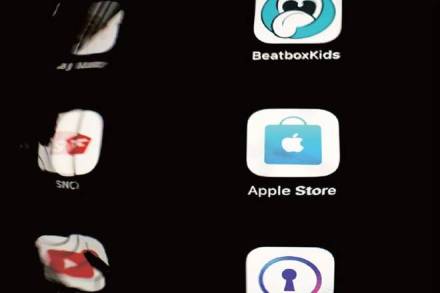Simplicity is supposed to be a selling point for Apple’s iPhone. It may be a problem at the US Supreme Court.
The court will hear arguments Monday on accusations that Apple is using its market dominance to jack up prices for iPhone apps. A ruling against Apple, letting a lawsuit go forward, could add to pressure the company already faces to cut the 30% commission it charges on app sales.
The case turns on what happens when iPhone users buy something at the Apple App Store. In allowing the suit, a federal appeals court said the transaction is a simple one in which consumers buy directly from Apple. Apple says it’s more complicated, with the company serving as a middleman connecting app developers with users.
Also read: As Bitcoin bites the dust, cryptocurrencies lose $700 billion in worst weekly fall since January
The distinction is critical because of a 1977 Supreme Court ruling that says only direct purchasers of a product can collect damages for overpricing under federal antitrust law. That decision was designed in part to ensure companies don’t have to pay twice for the same misconduct. Apple is part of an app economy that will grow from $82 billion last year to $157 billion in 2022, according to App Annie projections.
Apple and its tech-industry allies say a decision allowing the consumer lawsuit could open other companies that run online marketplaces and platforms to expensive antitrust claims. A broad ruling could affect Alphabet’s Google, Amazon.com, Facebook, Etsy and DoorDash, Apple and its supporters say.
“Any matchmaking service that operates on the internet from DoorDash to Etsy is going to be subject to duplicative damages,” said Marianela Lopez-Galdos, director of competition and regulatory policy at the Computer & Communications Industry Association, which backs Apple in the case.
Also read: Best tax-saving FDs in November 2018: SBI Vs ICICI Vs HDFC Bank Vs Kotak Vs Axis; Interest rates compared
But Apple’s critics say its control over the App Store makes it unlike other internet marketplaces. Apple decides what apps can be sold, gives developers a limited number of prices they can charge and tells users the App Store is the only place they can get apps, lawyers pressing the suit say. When a user buys an app, Apple collects the money, keeps the 30% commission and gives the rest to the developer. The company told the high court it passed $26.5 billion on to developers last year.
The app store is “really unique,” said Mark Rifkin, one of the lawyers pressing the suit. “Apple has put itself in the distribution chain, and it makes us deal with Apple in a way no one else does.”
Apple says the focus of the lawsuit is the 30 percent commission, something it says is paid by the developers, not the app purchasers. Although the consumers say they pay for the commissions through higher app prices, Apple says those are the type of ‘pass-through’ damages barred under the Supreme Court’s 1977 Illinois Brick v Illinois ruling.
